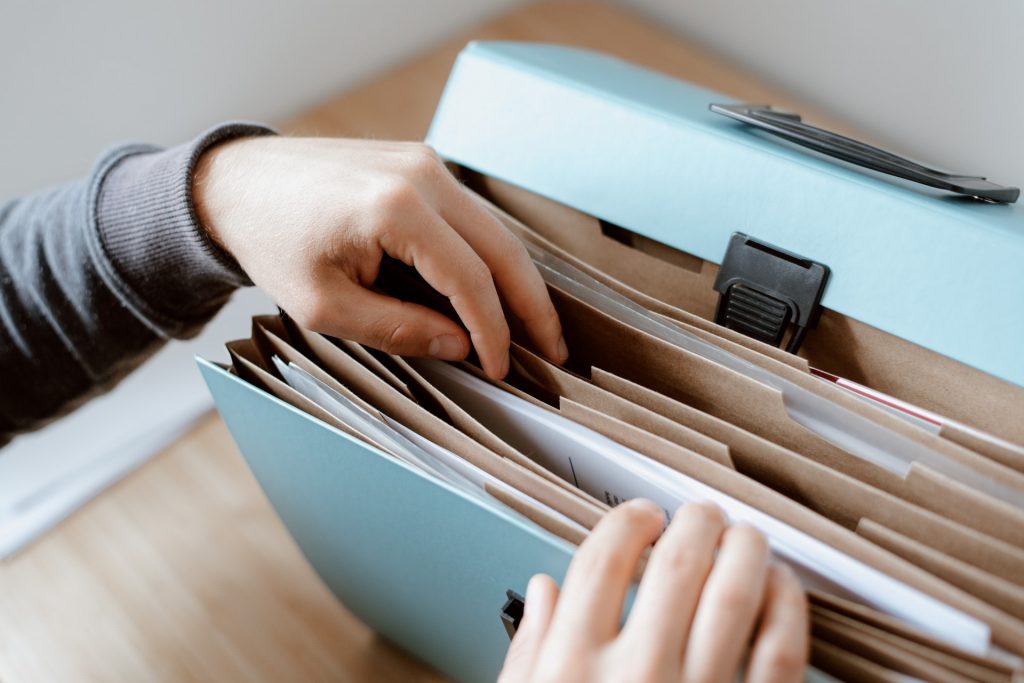Serving court papers to someone is a straightforward process especially when you’re working with the right entity. You could have the intention of suing someone in court due to a variety of reasons. However, what if the person you intend to sue is not a resident of the state you filed the case? What do you think will be the next steps?
Generally, service on a defendant who resides in a state outside the court’s jurisdiction, necessitates the use of a special legal process. In this case, you’ll need the help of a professional process server to serve the case successfully.
So, if you’re wondering how to serve someone court papers out of state, we’ll delve into that in this guide, giving you details on what an out of state service is all about as well as the different types of services.
Who should I hire to serve my out of state court papers?
Do I want to hire a process server in my local area or in the state where the documents are going to be served?
- It depends… We recommend our California clients hire us to serve their out of state papers because we have relationships with our trusted process servers throughout the United States. You will likely pay a little more than going direct but we can explain concisely what the exact service requirements are for our specific courts and the specific documents. In essence, we speak the same language and know what they need to hear in a sentence or two to serve the documents correctly. We manage the whole process so you don’t have to and you know it will be a good service.
- On the other hand we get a LOT of services from other states to be served here in California, in essence they have gone direct. There is a little more work the out of state client needs to do to ensure that we serve their out of state papers correctly. They will need to provide us with those concise service instructions for their specific court and documents. Create their own account on our system and they may need to prepare their own affidavit of service if they want it on their local form, but most of our Out of State Clients find that our provided proof of service works just fine for them. And if it turns out your documents are for an out of state federal case, we can serve the documents according to the federal rules, your states rules or California’s service of process laws.
What Is Service?
When you sue someone, an organization, or the government, the law requires you to give the person a formal notice that you’ve begun the legal process. Similarly, if you’re already involved in a case and filed papers with the court, you must notify the opposing side of the legal document you’ve filed.
The legal approach to giving formal notice is to offer a copy of the documents you’ve filed with the court “served” to the other party. The term “service of court papers” stipulates that the opposing side receives copies of any documents you file with the court.
The document is usually served to the other party by a third person. The “process server” is the entity responsible for carrying out this task. Furthermore, the judge in charge can’t make any decisions until the person has been properly “served.”
Types of Service
You can serve papers in various ways. Process servers are the mastermind behind them. Service can be tricky, but it’s vital. You won’t be able to move on with your case if the paperwork isn’t done appropriately.
Now, let’s delve into the different types of service you’ll encounter:
1. Personal Service
“Personal service” indicates that the court documents must be personally delivered to the opposing party by someone neutral to the case.
The notion of “personal service” is that the process server must identify the person who is being served, present the legal papers to them, and inform them that they’re court papers. Service is still deemed valid if he or she tears them up or tosses away the paperwork. After all, the individual who’s being served, now owns those documents and can do whatever they want with their documents, they aren’t required to sign any legal papers, that’s the process server’s job.
The process server next fills out a proof of service form, which details when, where, and how the papers were served. Finally, the proof of service is signed by the server and filed with the court or returned to you to file at the court.
The day you serve papers to the other party, personal service is completed. It’s the most dependable method of service because the court knows for sure that the party served received the papers, and it’s legitimate in any situation. Most process servers even prefer this type of service compared to other methods.
2. Substitute Service
“Substitute Service” is similar to personal service except that instead of leaving the documents with only the named party, we can now leave the documents with someone other than the subject; a wife, son, coworker or manager for example.
Substitute Service is usually only allowed at one of 3 locations for the party:
- Usual Place of Home
- Usual Place of Business
- Usual Place of Mailing
With a competent adult or person of suitable age and discretion.
This is where service out of state can get interesting. Every state will have their own rules and may define this differently. Some states allow you to sub serve the documents to a 13 year old on the first attempt. Others may require the documents be left with someone 18+ after making 3 diligent attempts on very specific days and times. Several states will allow sub service at a home address but not at a work address. There are many specific documents that don’t allow for substitute service at all and require only personal service.
This is why it’s very important to contact a professional process server to serve your court papers out of state.
3. Service by Notice and Acknowledgement of Receipt
This type of service is typically used by parties that are in agreement with one another or are cooperative when it comes to the service of the documents. Do be aware that in some courts by signing this notice you may be responsible for paying your First Appearance Fee to the court. Here, the documents are mailed to the other party together with two copies of the Notice and Acknowledgement of Receipt.
The other party signs one copy of the Notice and Acknowledgement of Receipt and returns it to the server or party, informing the court that he or she received the papers in the mail. The server then fills out a legal form that specifies who the papers were sent to, what address they were sent to, when, how, and where they were sent from.
The server will proceed to attach the opposing party’s Notice and Acknowledgement of Receipt to the Proof of Service form, as well as sign it, before delivering it to you or the court to be filed. It is normally completed when the other party signs the Acknowledgement of Receipt section of the form and mails it back to you. This is also why it can be an ineffective way to serve the documents. Most people won’t willingly sign the form and mail it back to the other party.
4. Service by Posting on the Premises and Mailing
This form of service is often used in eviction cases only or through Service by Special Court Order; some states will allow this type of service from the beginning, depending on the type of documents. The principle here is that after multiple attempts to personally serve the papers have failed, service by posting and mailing is then employed.
The process server has to make a diligent effort to personally serve the papers on the other party when using service by posting and mailing. If the party isn’t available, the server can attempt alternative days of the week and times of day, when the other person is most likely to be home. The requirements will vary from state to state and even court to court in some states.
If the server is unable to locate the person to be served at each of those times, and if the server is unable to locate an adult on the premises with whom to leave the papers, then this alternative means of service may be required if allowed by the law.
First, the server must prepare a “Declaration of Due Diligence,” which is a legal document that details every attempt the server took to serve the papers in person and is filed with the court. It should mention the dates they visited the property, as well as the hours of the day and the outcome.
Thereafter, the party must file a court application requesting authority to serve through “posting and mailing.” If the court permits service by posting and mailing, the summons must be posted on the premises in the mailing address where the other party is most likely to notice it, and a copy of the papers likely must be mailed by certified mail but in some cases first-class mail will suffice.
The scheduled date for this service to be completed is ten days after the papers are mailed, in California for example.
5. Service by Publication
This form of service refers to publishing the legal documents in a general circulation newspaper in the area where the opposite party is most likely to be found. To do so, you must first seek authorization from the court. It’s frequently used when you have tried to serve but can’t find the other party and doesn’t know their current home address or workplace.
Before the court will allow you to serve by publication, you must demonstrate to the court that you made every effort to locate the opposing party. Every court has slightly different requirements, but most at the very least require you to try to locate the opposing party at their last known residence or place of employment and usually will require you to try and locate the subject through a Private Investigation or Skip Trace. If our PI is not able to locate the subject for service we will generally provide a Publication Report that should satisfy all the courts requirements for service by publication.
After you’ve completed all of the processes required by the court before requesting service by publication, prepare a “Declaration of Due Diligence” and submit the request for the court order permitting you to serve by publication.
A proposed order must also be attached. If the court agrees to your request for publication service, the judge will sign your proposed order and allow you to publish your court document in a local newspaper.
The scheduled date for this service to be completed is by the end of the 28th day after the summons and complaints are published in the newspaper for the first time.
6. Service by Posting
“Service by posting” refers to your server or the court clerk posting the summons and complaint in the courthouse’s designated court notifications area. You’ll need to request the courts permission to do this, just like with “service by publication.”
It’s typically utilized when you don’t know where to look for the other party and don’t know their address or workplace. However, to engage in “service by posting,” you must normally be eligible for a fee waiver.
Fill out and file a request for a fee waiver, asking to be allowed to serve by posting, after you’ve completed all of the processes required by your court. A “Declaration of Due Diligence” must also be written. You must also submit an ex-parte request for a court order permitting you to serve by posting.
The judge will sign your proposed order and allow you to have your summons and complaint posted at the courthouse if the court grants your fee waiver and your request to serve by posting at the courthouse. It’ll then be completed by the end of the 28th day after the summons and complaint were posted for the first time.
7. Service by Certified Mail
When the party who must be served lives out of state, papers are normally served by sending a copy of the documentation to that party through first-class mail and return receipt requested, such as Certified, Registered or Express Mail.
The individual who mails the papers must be at least 18 years old and not involved in the case. A Proof of Service must be completed by the server, confirming how the papers were served. On the tenth day after mailing the papers, certified mail service is complete.
Service is deemed complete if the defendant or someone responsible to receive legal documents on behalf of a corporate defendant (CCP 416.10) signs the return receipt but if the wrong person, like a receptionist or the mail clerk signs for all of the mail that comes into the office, then signs for the legal papers, the service may be invalid. Certified mail is the least effective way to serve someone when it is allowed.
However, this form of service should not be used to serve a party that’s located outside of the United States. Serving someone outside of the United States is a difficult and complicated task and requires that you follow the procedures outlined in the Hague Convention. For assistance, contact your court’s self-help center or a lawyer.
Finding Someone You Intend to Serve Court Papers
When you sue someone, you use their legal name as well as any aliases to file your complaint. You’ll also require that individual’s address. If you don’t already have it, you may usually find it by searching through any material you have about the legal case.
However, this information isn’t always readily available. Here are a few ways of locating someone you intend to serve papers.
- Send a letter to the individual’s mailing address. While you’re at it, write “Return Service Requested” under your return address. You’ll receive a letter with a new address if the person filed an address change with the post office.
- Look for the person’s last known address at the nearest post office in the region. Check to see if the sender left a forwarding address.
- Look through free online phone directories. You can try to find the person using the Internet. Some Internet searches are free, and you can acquire the phone number or address if the person is mentioned.
- Go through a website that specializes in searching for people. You might be able to pay a modest price to have the address or phone number of the person you’re looking for provided to you by an Internet company.
- Use social networking platforms to find information. You may search prominent social networking sites for people’s names, locations, and possibly other information that you might find useful.
- Make use of a reverse phone directory. If you simply have the person’s phone number, you can look up their address in a reverse telephone directory, which allows you to search by phone number for the subscriber’s name and address.
- If you still can’t find them or are not confident in the information you find online for free or low cost, sometimes it’s best to just have a professional private investigator attempt to locate your defendant for you. You may find that it is not as expensive as you would think.
Getting Started with Serving Someone Court Papers out of the State
Before you proceed, you need to know the basic requirements on how to serve someone court papers out of the state. In many cases, such as real estate, or personal injury car accidents or family law cases, process servers can serve defendants who don’t live in the state where the action was filed.
If you need a process server to serve an out-of-state witness in California or make an effort at service in another type of lawsuit, you or your attorney may be required to file in the state where that person resides. If you’re an individual who isn’t sure how to file a lawsuit, you should speak with a legal practitioner to figure out the best way to go about it.
When it comes to selecting a server to serve a person or a corporation who lives out of state, it’s important to remember that different state laws govern civil process service. The sheriff’s office or a governing body may require process servers to acquire permission from them before serving the legal documents in particular counties and cases.
Some counties or states require that you must obtain specific clearance from the county clerk, the sheriff’s office, or a governing body before serving the process while other states demand certified mail or first-class mail service before hiring a process server. It’s also crucial to understand whether personal service is required or whether the legal documents can be mailed.
You may be needed to file paperwork electronically or with the original stamped documents. Several courts have special paperwork that must be used in addition to these broad requirements. If you’re unsure, your process server can guide you through the process or link you to the right spot for more information.
Filing With the Court and Gathering Information to Share With the Process Server
If you’re prepared, serving an out-of-state individual or organization can be relatively simple. Out-of-state service appears to be similar to in-state service. The first stage in effecting civil process service begins before you even contact a process server, just as it would with a case filed in the same state as you.
The criteria for what constitutes lawful and effective service will differ based on three major factors: the type of case, the originating state, and the state where the legal documents must be served.
Each case will be unique, which is why the first step in this procedure should always be to understand the requirements for your specific situation so that you can approach the process server informed.
You must gather all relevant information regarding your case and file it with the appropriate court. After you’ve completed this and the summons and complaints are ready to be served, you’ll need to conduct some preliminary research to learn more about the person who will be served.
It’s a good idea to acquire more information for your process server in addition to the court documents. While the minimal information provided on the court paperwork is sufficient for trying a service, process servers would benefit greatly from a current physical description of the person to be served, as well as any other identifiable information.
Additional info that may be useful to process servers includes the following:
- The name of the subject
- The last known address
- Physical description
- A photo of the person to be served
- Is there anyone else in the home that could be confused for the subject?
- Are they the Only male or female in the home?
- Vehicle description and/or license plate number
- Work schedule
- Work address
- Any information you have that will help identify or locate the person that is being served
These are some of the important additional details that your process server may require to ensure that they’re targeting the right person.
Final Words
Learning how to serve someone court papers out of state is pretty straight forward. Make sure you arrive early on the day your case is scheduled once you’ve completed the relevant legal procedures.
Before your hearing, you may need to check in with court workers in the courtroom. If you’re not present when your case is called, your case may be dismissed or the court may decide to postpone it. If you must miss your court date due to an emergency, notify the court before your scheduled hearing.
You’d have to show the court paperwork or any supporting evidence. Meanwhile, the opposing party and their witnesses will have an opportunity to explain their side of the tale and present the same types of evidence.
While doing this, you need to work with a qualified process server. That’s to ensure that everything goes as planned in the courtroom. The beauty of contacting a professional process server is that everything regarding the service will be well-sorted and you’ll have little to no issues dealing with the case.
You might also enjoy these related recommendations: Fremont Process Server













